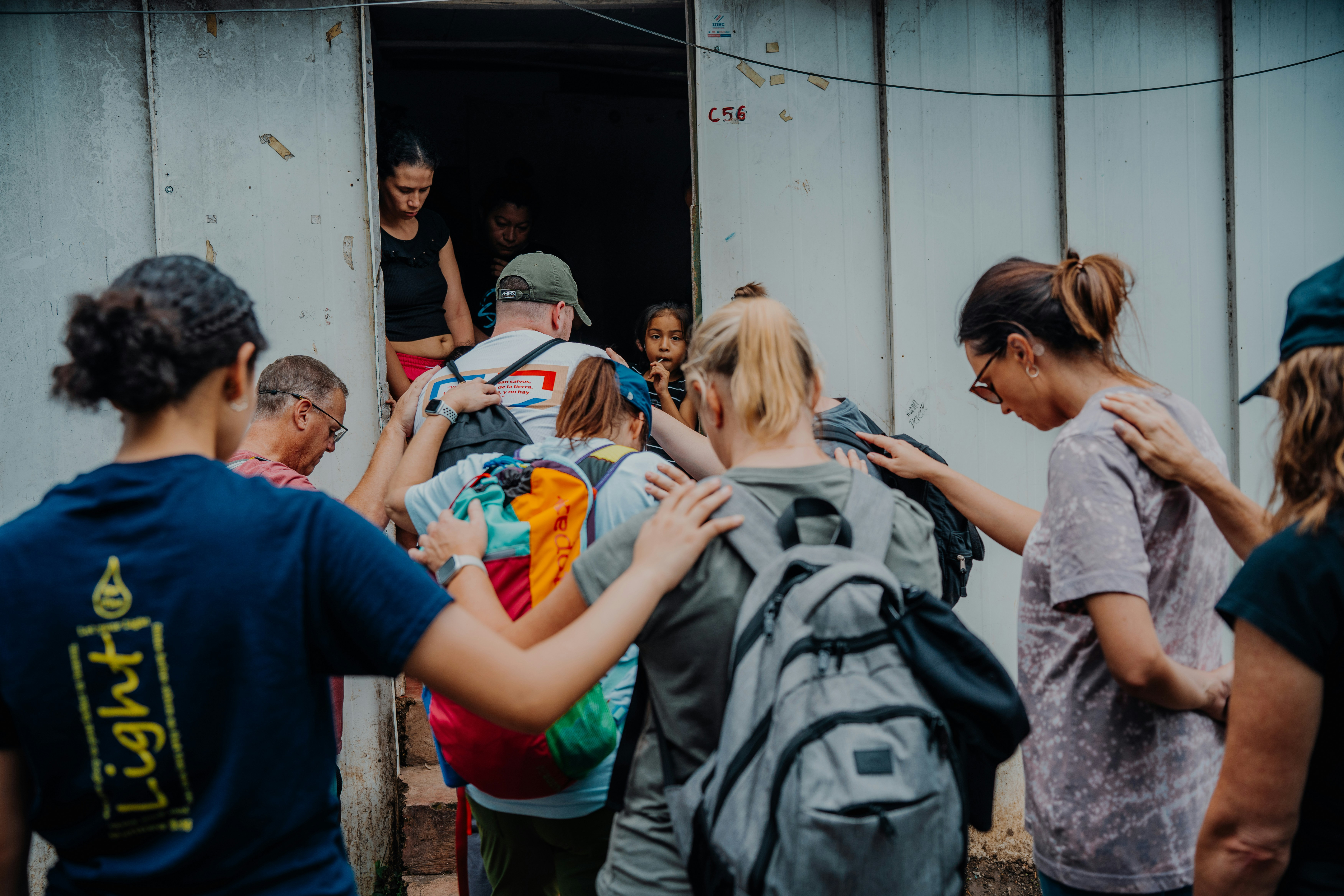
Welcome to Engaging Gen Z: Turning Short-Term Trips into Lifelong Mission!
This course equips short-term mission trip leaders to intentionally mentor and mobilize Gen Z toward long-term engagement in God’s global mission. You’ll explore key insights from current research on what draws and hinders Gen Z from pursuing missions, learn practical ways to guide them through reflection and spiritual growth during trips, and discover how to help them take clear next steps after returning home. Expect to gain tools for listening well, fostering authentic community, addressing common barriers, and turning your short-term trip into a launchpad for lifelong service.
- Teacher: Daniel Graham
- Teacher: Alyssa Jeffers
- Teacher: Ryan Jeffers
- Teacher: Delilah Pugsley

Description:
The objective of CVM’s short-term mission efforts is simply stated as
Short-term missions with a long-term impact.
Obviously, you are helping to lead a short-term mission trip. But consider that this has a long-term impact on so many people and, through your leadership, you can help that impact be a positive one. We hope that these experiences have a long-term impact on you as a leader, helping you deepen your faith in Christ and care about the people you lead as well as those you serve. We hope these experiences have a long-term impact on your team members as they serve others in ways that encourage healthy growth in communities without fostering unhealthy dependence on mission teams. And, of course, we hope the long-term impact extends to the individuals and communities whom you serve – enabling them to develop their communities, their own health and well-being, and their faith in Christ in sustainable ways.
*Note: You must visit all 3 modules in order to complete this course.
Objectives:
By the end of this course, learners will
- Recall CVM’s objective for short-term missions and explain its meaning
- Name aspects of caring for your team and express how these enable a long-term impact
- Identify how reliable and effective communication with your team, your host, and CVM staff facilitates long-term impact
- Describe how framing the missions experience for your team fosters a long-term impact
- Understand how anticipating difficult circumstances on the field helps promote a long-term impact
- Recognize that both preparation and flexibility are essential to a short-term mission with a long-term impact
- Teacher: Alyssa Jeffers

Description:
The short-term mission team leader is important in assuring that a short-term mission team, as well as the host, has a good experience. A properly prepared team leader does not ensure that a trip will be without conflict or challenges, but it does ensure that these things can be overcome in a positive way. There are many aspects of proper team leader preparation, and this course will focus on the care a team leader should give to their team. Caring for a team begins prior to the trip, continues during the trip, and extends after the trip is complete. By approaching team care in this way, a short-term mission team leader can facilitate a positive experience for all involved and improve team care for future trips.
*Note: You must visit all 3 modules in order to complete this course.
Objectives:
By the end of this course, learners will
- Be able to explain why team care is important
- Be able to care for their teams prior to short-term mission trips
- Be able to care for their teams during short-term mission trips
- Be able to care for their teams after short-term mission trips
- Know how to develop a team care plan that grows more effective with each team
Certs & Credits
Certificate of Completion
- Teacher: Alyssa Jeffers

Description:
The trip leader is key to a positive short-term mission experience. In this course, we discuss the need for a leader to put the mission trip in context for participants. Framing the experience helps the mission team to focus on what is important and not become sidetracked by secondary things. This course will show how communicating purpose, setting priorities, and leading by example will help you mentor your team toward short-term missions with long-term impacts.
*Note: You must visit all 3 modules in order to complete this course.
Objectives
By the end of this course, learners will
- Be able to explain what framing a mission experience is and why it is important
- Develop a personal mission statement as well as a purpose statement for their mission team
- Be able to develop a team priority list and action steps to accomplish those priorities
- Understand why leading by example is key to framing the mission experience for a team
Certs & Credits
Certificate of Completion
- Teacher: Alyssa Jeffers

Description:
A good trip leader is key to a positive short-term mission experience, and this course addresses the need for a trip leader to be a clear and reliable communicator. Effective communication with your mission host, your team, and CVM staff will help you lead a short-term mission that has a long-term impact.
*Note: You must visit all 3 modules in order to complete this course.
Objectives:
By the end of this course, learners will
- Be able to explain why clear and reliable communication is important to short-term missions
- Be able to communicate effectively with their mission hosts
- Be able to communicate effectively with their team members
- Be able to communicate effectively with CVM staff
- Know how to develop a communication plan that grows more effective with each team
- Teacher: Alyssa Jeffers

Description:
The Short Term Mission Team Leader is key to a positive short term mission experience. In this course we discuss the need for a team leader to address difficult circumstances that arise during a mission trip. This will help the mission team stay safe and continue to be a good witness to those they came to serve. This course will show how to understand potential difficulties, plan for their occurrences and communicate the plan to your team. This kind of guidance will have a lasting impact on the mission participants as well as those that they serve.
*Note: You must visit all 3 modules in order to complete this course.
Objectives:
By the end of this course, learners will
- Be able to explain why it is important to anticipate difficult circumstances on their short-term trip
- Be able to plan their response to top safety and security risks on their trip
- Know how to respond to the most common emergencies on short-term trips
- Know how to address relational conflict among short-term team members
- Teacher: Alyssa Jeffers
Description:
The Short Term Mission Team Leader is key to a positive short term mission experience. In this course we discuss the need for a team leader to be well prepared but also flexible. Proper preparation will put a mission team at ease, and team leader decisions will be easier to make while on the field. Unfortunately, not everything goes as planned on a mission trip and a trip plan can become detrimental if the leader is inflexible. This course will review the importance of good preparation and the steps necessary to create a trip plan. It will also show the importance of following that plan with humility and flexibility. By coupling preparation with flexibility, a team leader puts their team in the best position to make a lasting impact.
*Note: You must visit all 3 modules in order to complete this course.
Objectives:
By the end of this course, learners will
- Be able to explain why preparation is important before a short-term mission
- Be able to explain why flexibility is important during a short-term mission
- Be able to explain how preparation and flexibility work together to enable short-term missions with long-term impacts
- Teacher: Alyssa Jeffers

Description:
Sharing your testimony on a trip can sometimes seem like a daunting task, but it can also be one of our most effective tools. Dr. Mary McDonald provides a simple, effective framework for sharing your story.
*Note: You must visit both modules in order to complete this course.
- Teacher: Alyssa Jeffers
